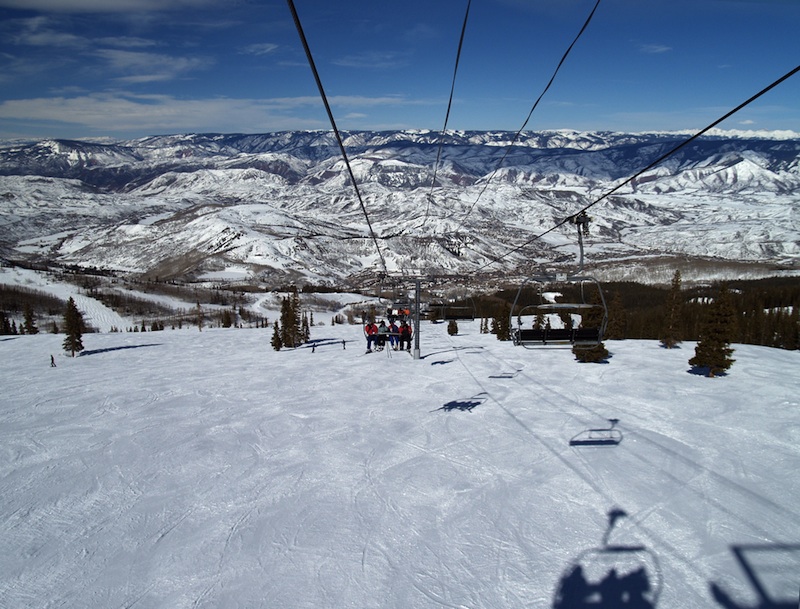Skiers' Thrill-Seeking May Be Genetic

The desire to seek thrills on the ski slope may be in your genes, according to new research.
The study, which involved about 500 skiers and snowboarders of intermediate to expert skill level, found that people who had a particular genetic marker were more likely to say they tried daredevil moves on the slopes than those without the marker.
For instance, people with the marker more often agreed with statements such as "I like to ski/ride fast" and "I like to go down runs that I have never been down before."
The findings held even after the researchers took into account factors that could affect thrill-seeking behavior, such as gender and skill level.
The marker is found within a gene involved in the creation of a brain receptor that binds to dopamine — a chemical thought to play a role in reward-seeking behaviors. The marker may affect the number of dopamine receptors in the brain.
It's not clear how the marker could affect a person's behavior, said study researcher Cynthia Thomson, a Ph.D. student at the University of British Columbia's School of Kinesiology. But one possible explanation is that people with fewer dopamine receptors need a greater amount of stimulation (in the form of thrills) to reach the same level of arousal as people with more receptors, Thomson said.
However, the new study only found an association, so it doesn't prove that this genetic marker plays a role in thrill-seeking behavior, Thomson said. In addition, there are likely many genes that influence this type of behavior, which remain to be found.
Get the world’s most fascinating discoveries delivered straight to your inbox.
Previous studies have investigated whether this genetic marker is linked with being an extrovert, or with seeking out new things in general. However, none have examined the connection between this marker and thrill-seeking in sports.
In addition, previous studies often question people about what they would do in hypothetical situations, but because the new study focused on skiers and snowboarders, it was able to inquire about people's actual behavior.
Thomson said sports may be a pro-social outlet for sensation-seeking, as opposed to more deviant outlets, such as substance abuse.
The study was published online Dec. 17 in the Scandinavian Journal of Medicine & Science in Sports.
Pass it on: A genetic marker is linked to thrill-seeking on the ski slopes.
Follow Rachael Rettner on Twitter @RachaelRettner, or MyHealthNewsDaily @MyHealth_MHND. We're also on Facebook & Google+.

Rachael is a Live Science contributor, and was a former channel editor and senior writer for Live Science between 2010 and 2022. She has a master's degree in journalism from New York University's Science, Health and Environmental Reporting Program. She also holds a B.S. in molecular biology and an M.S. in biology from the University of California, San Diego. Her work has appeared in Scienceline, The Washington Post and Scientific American.


